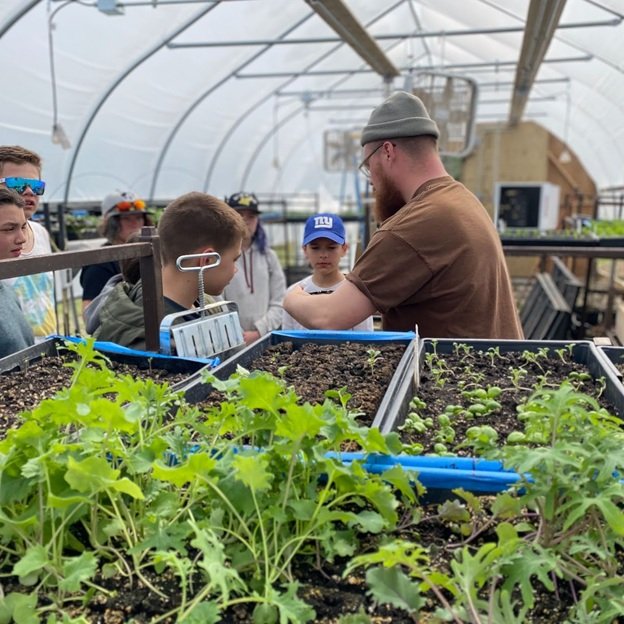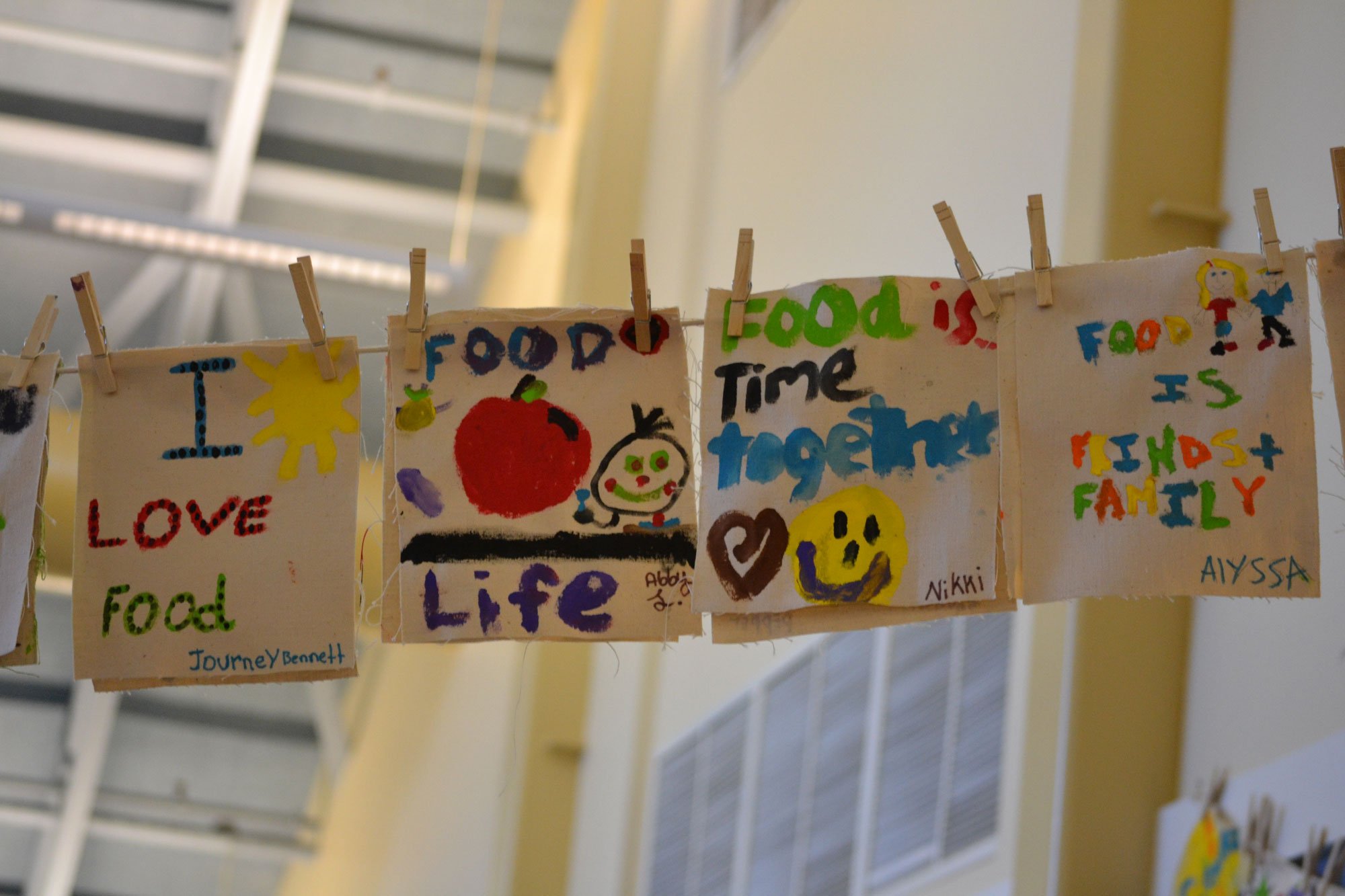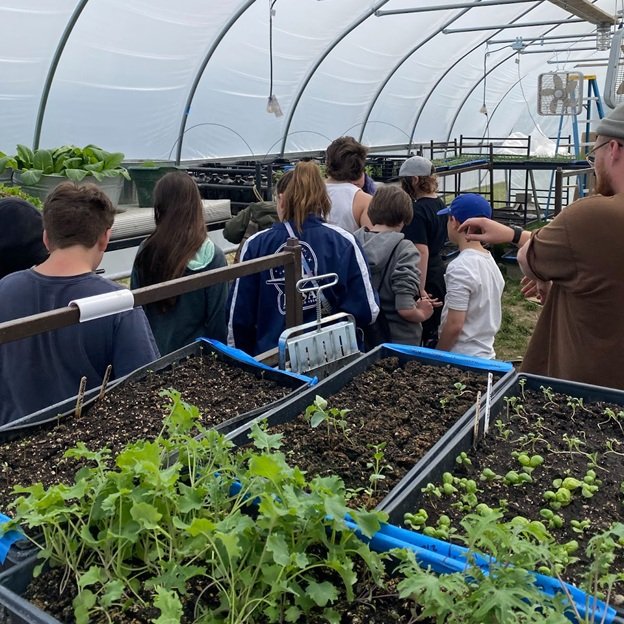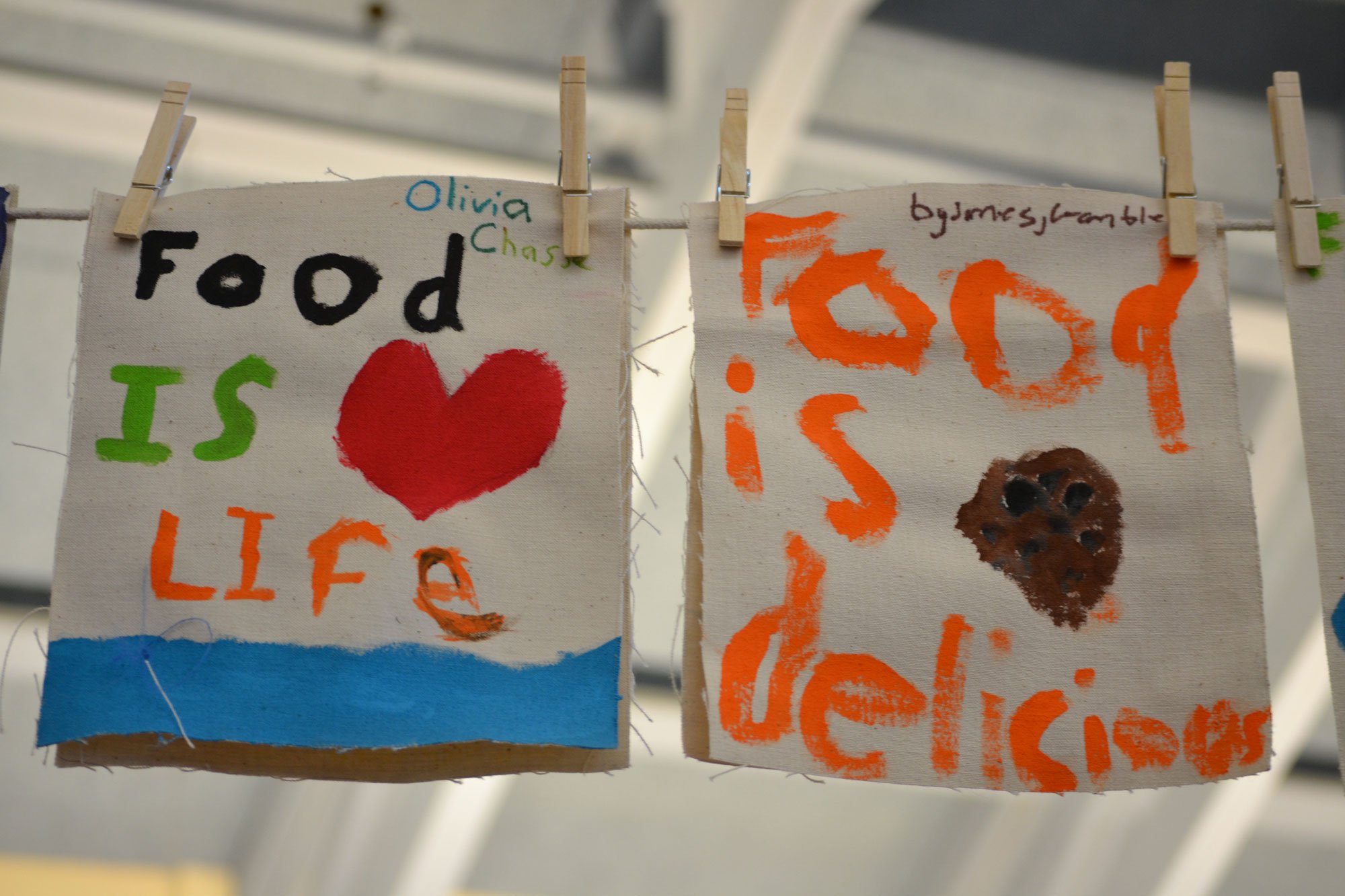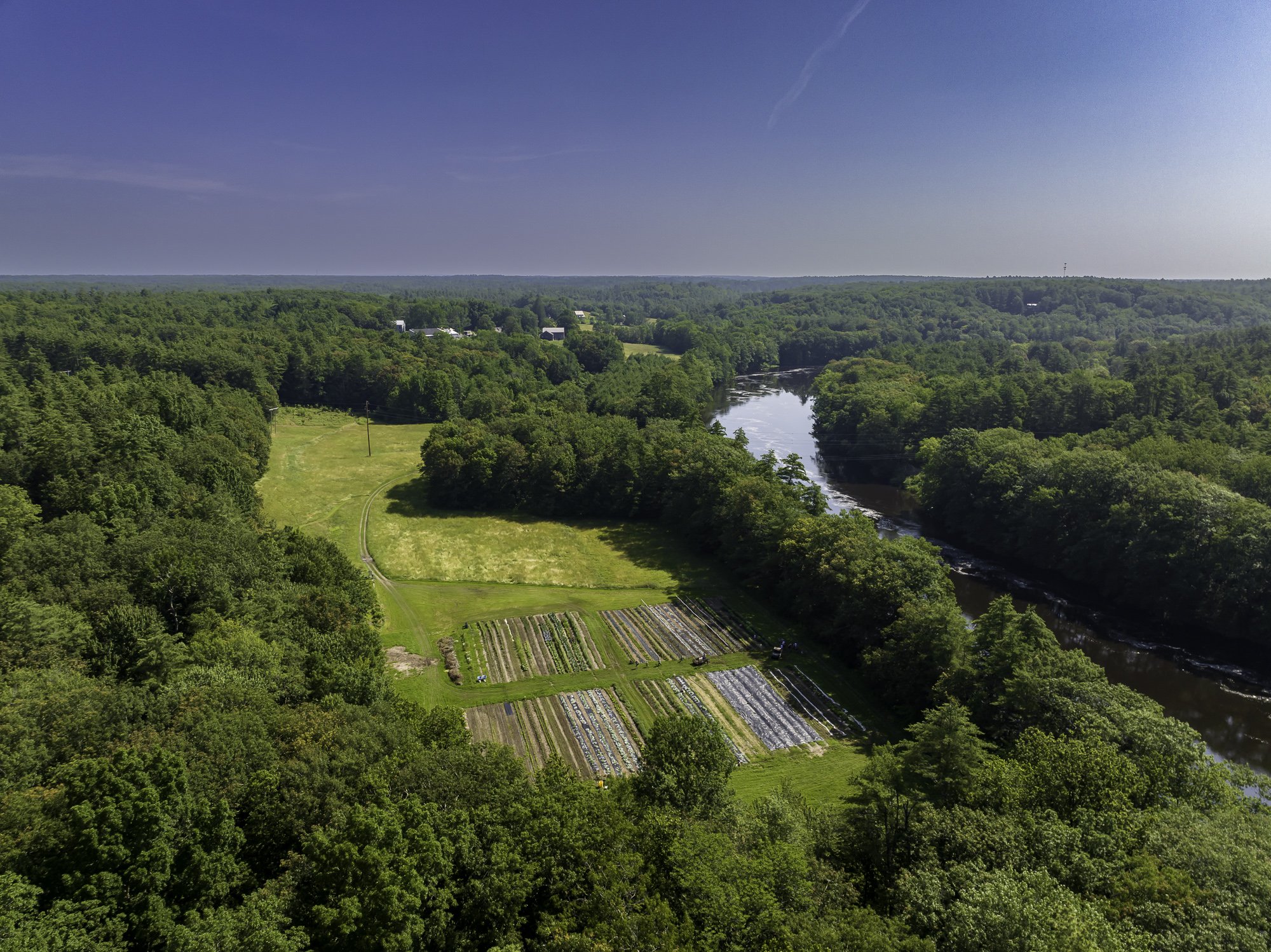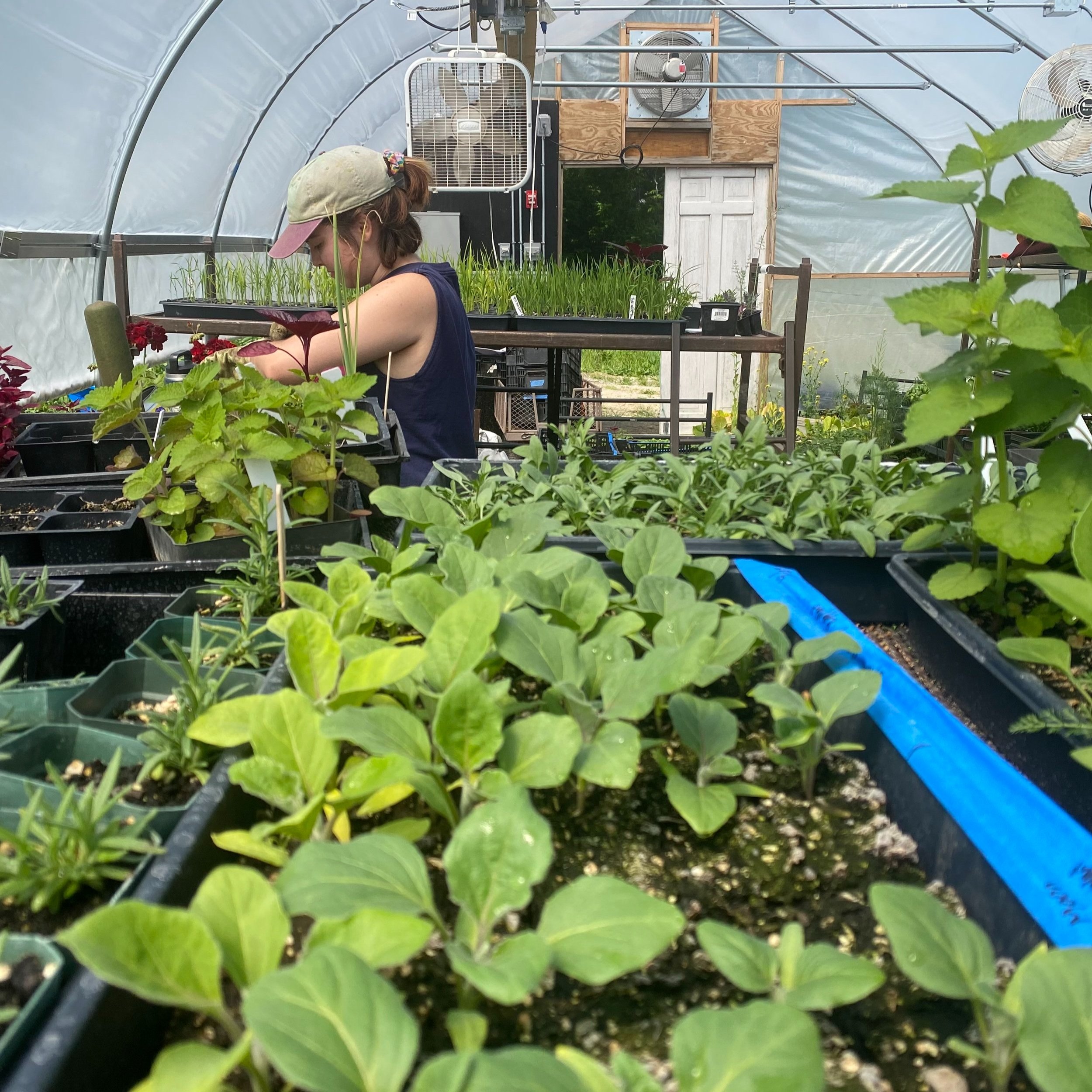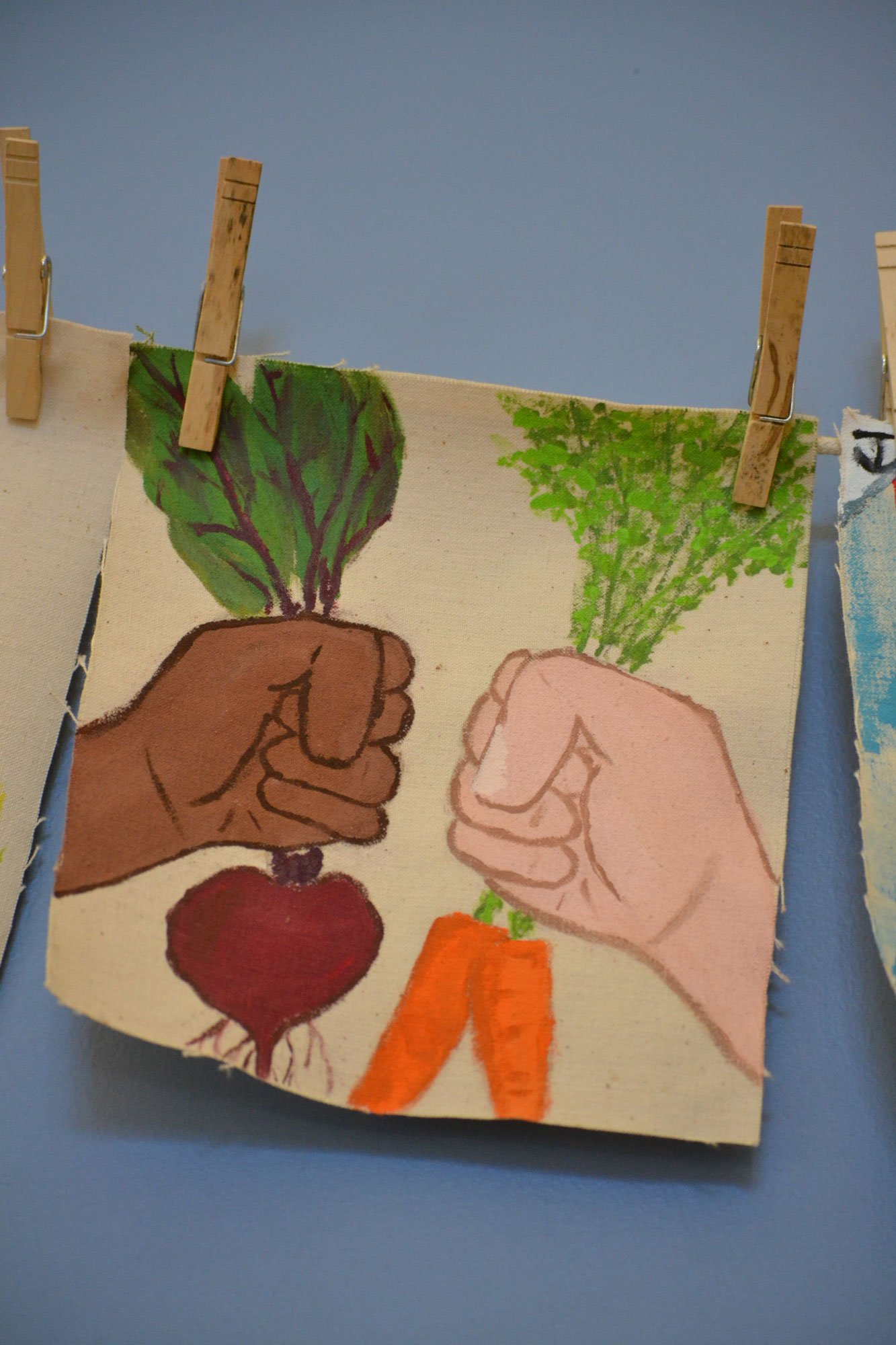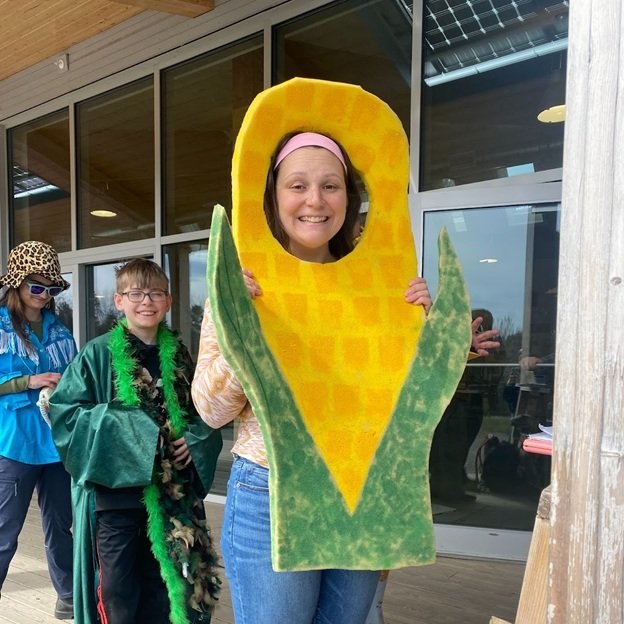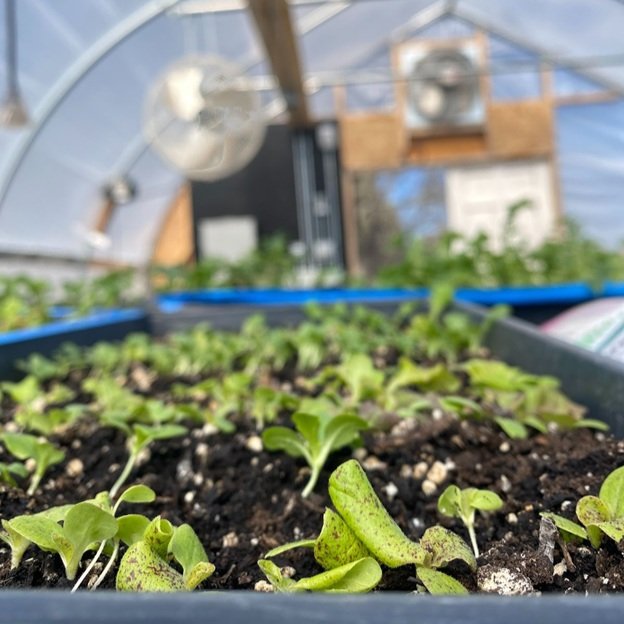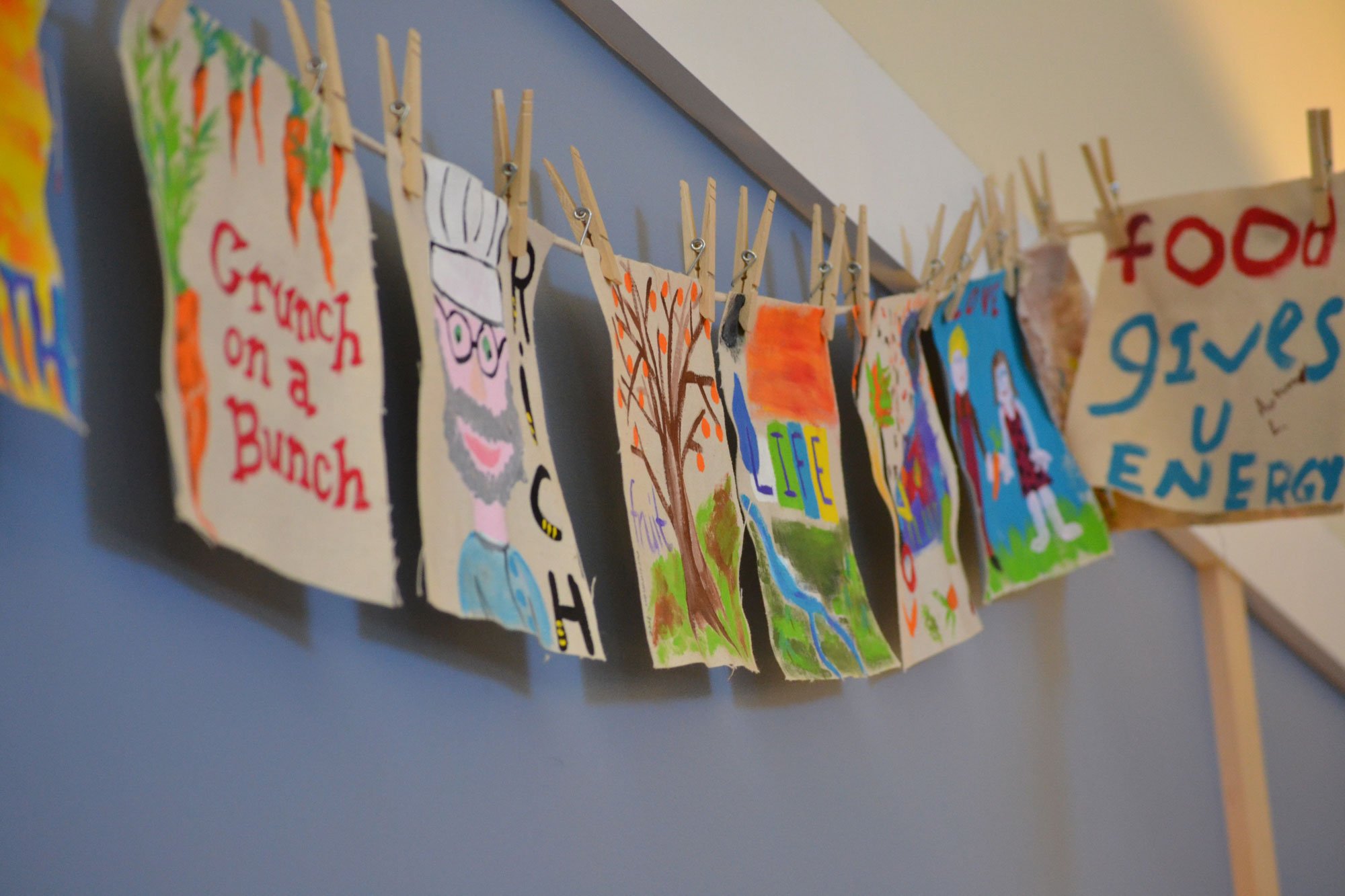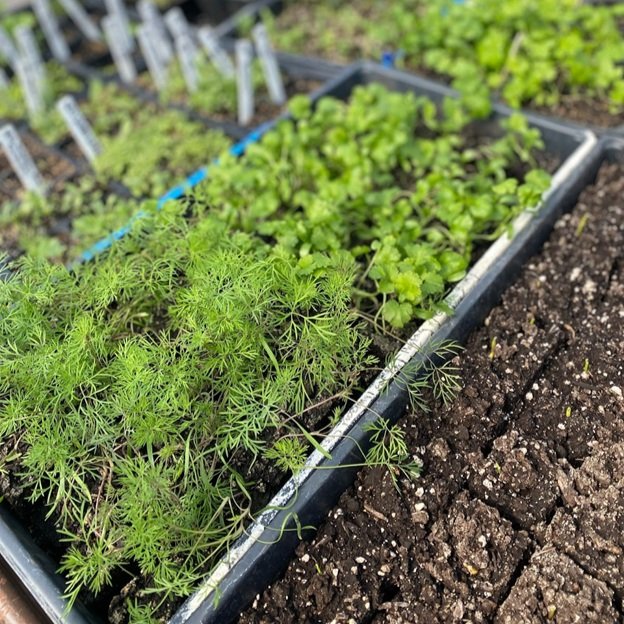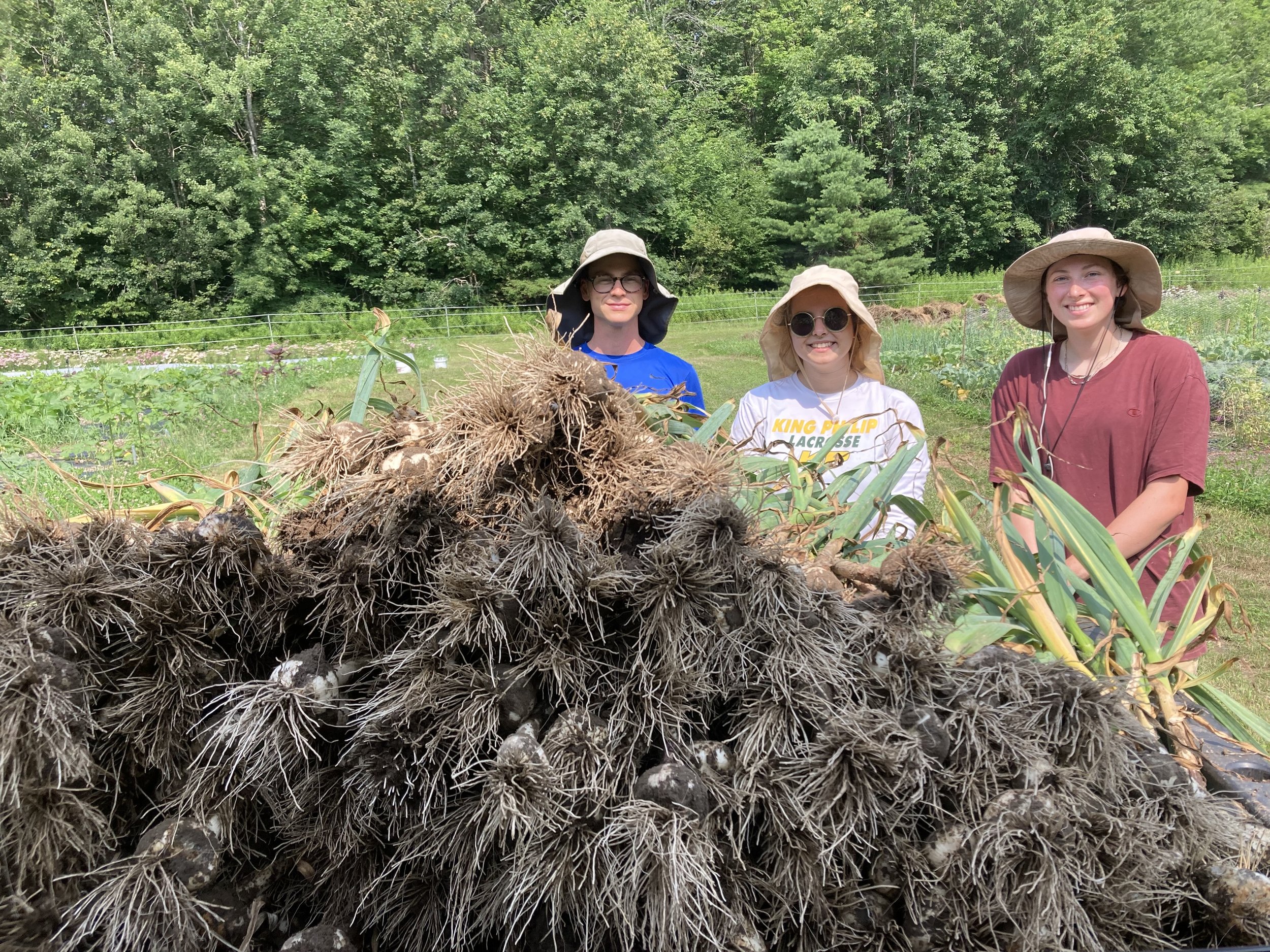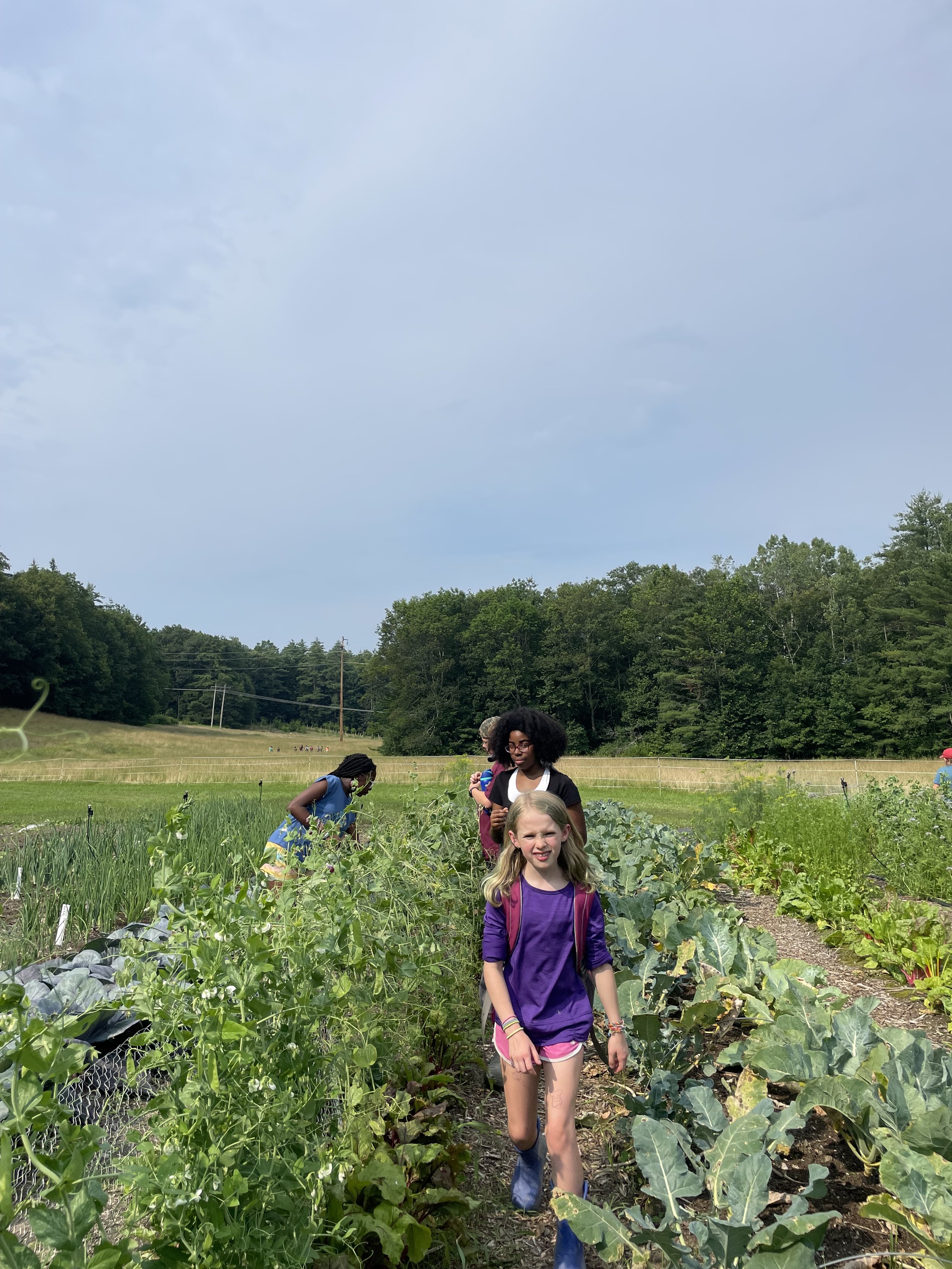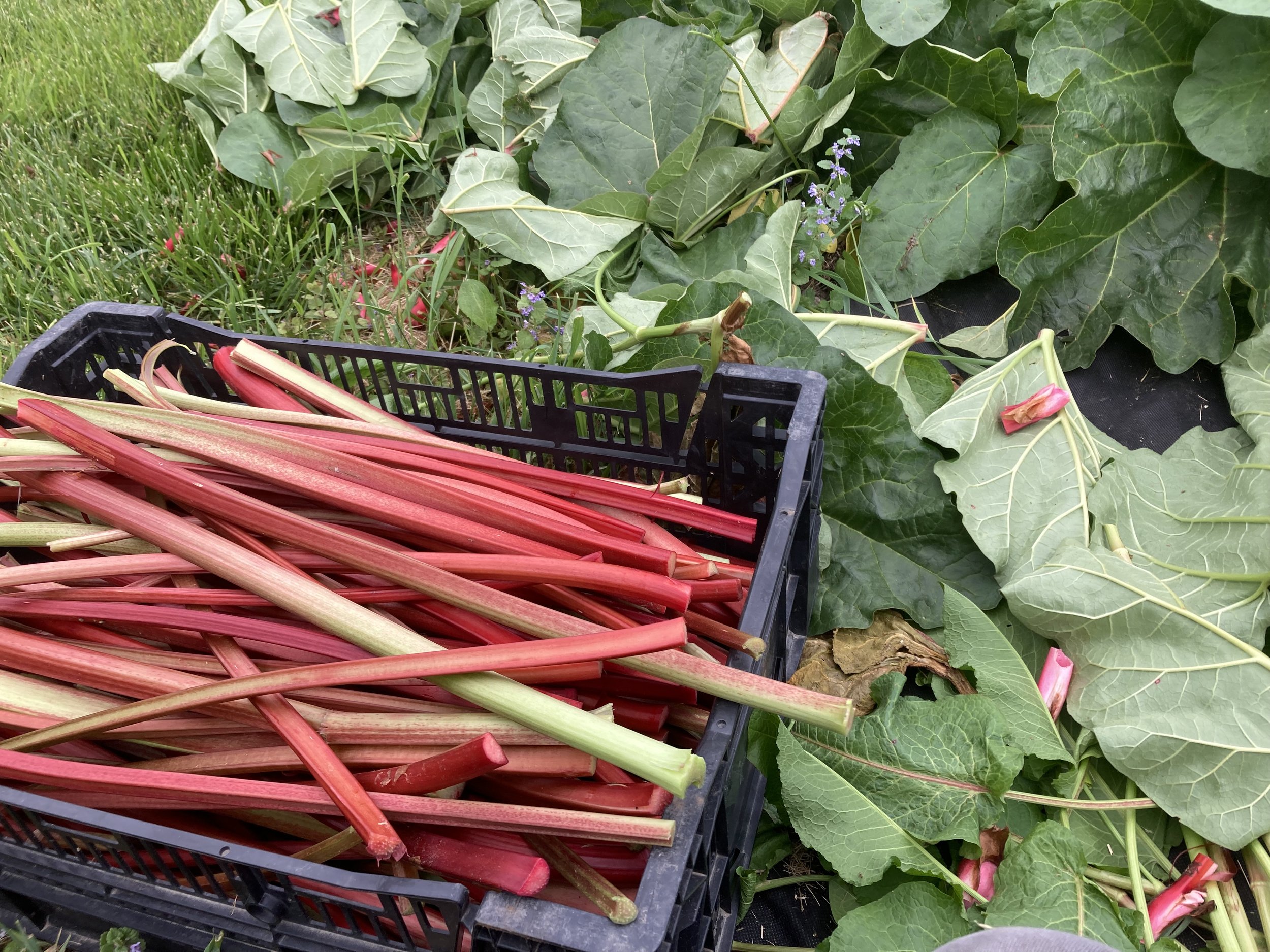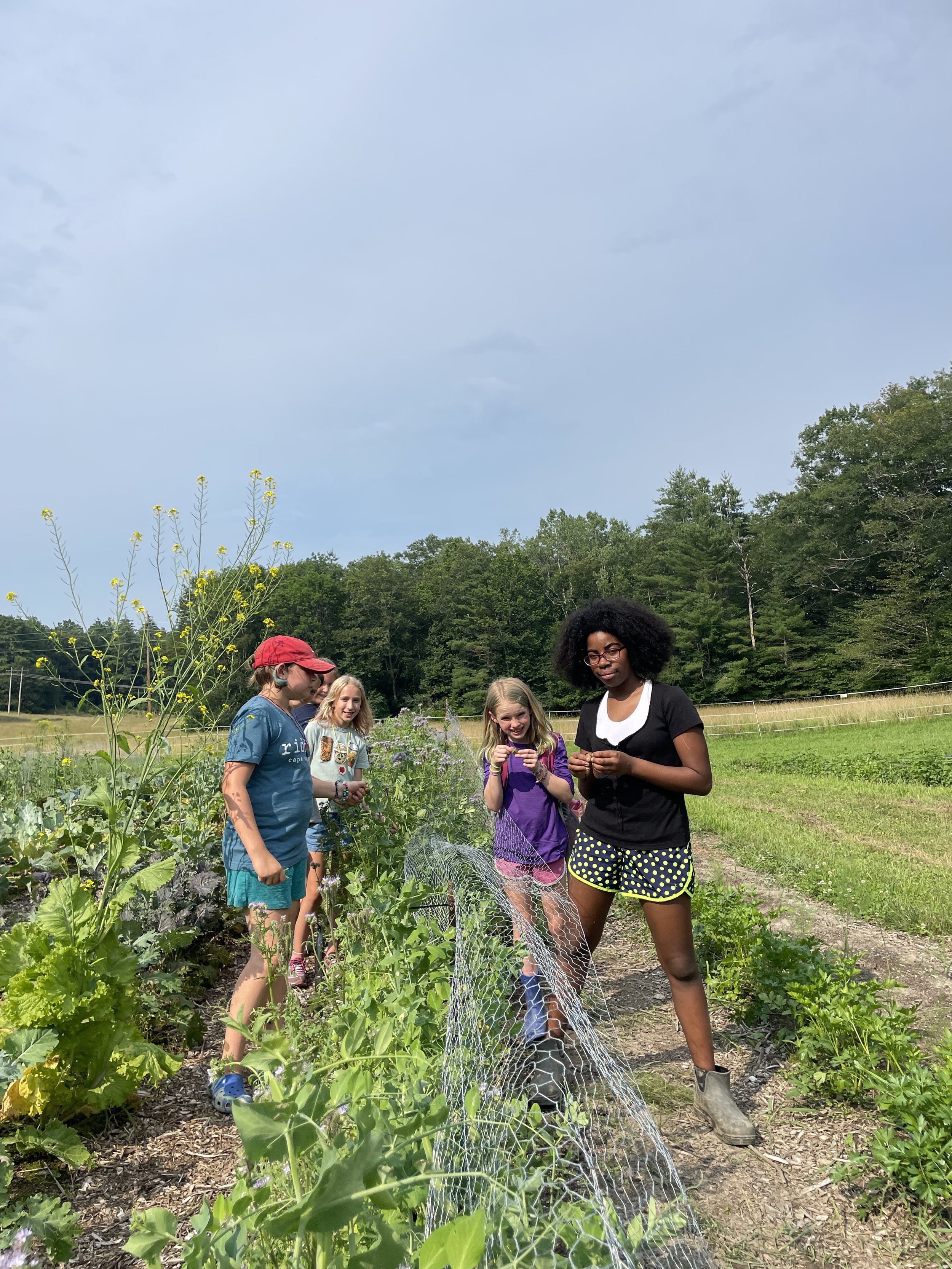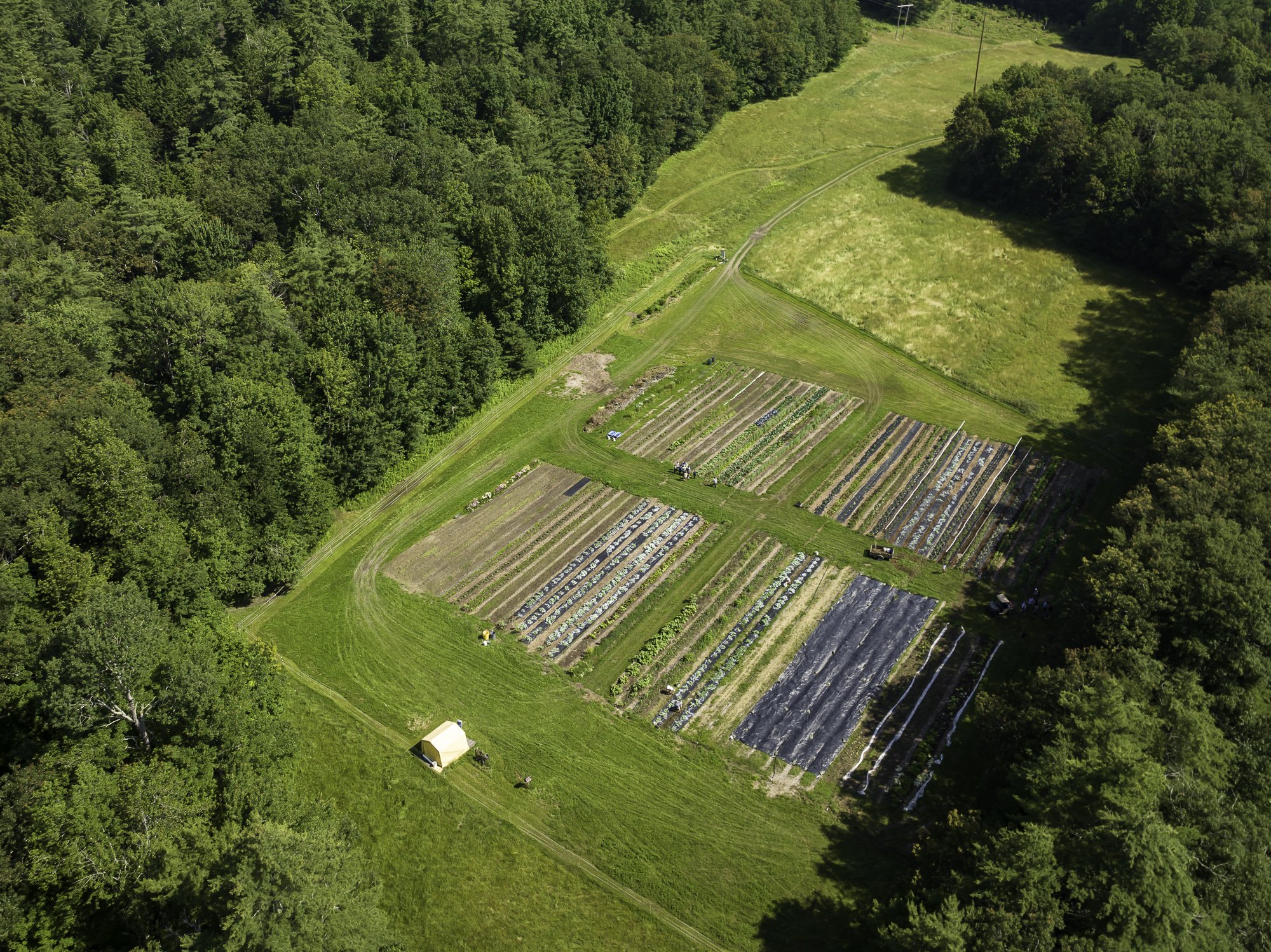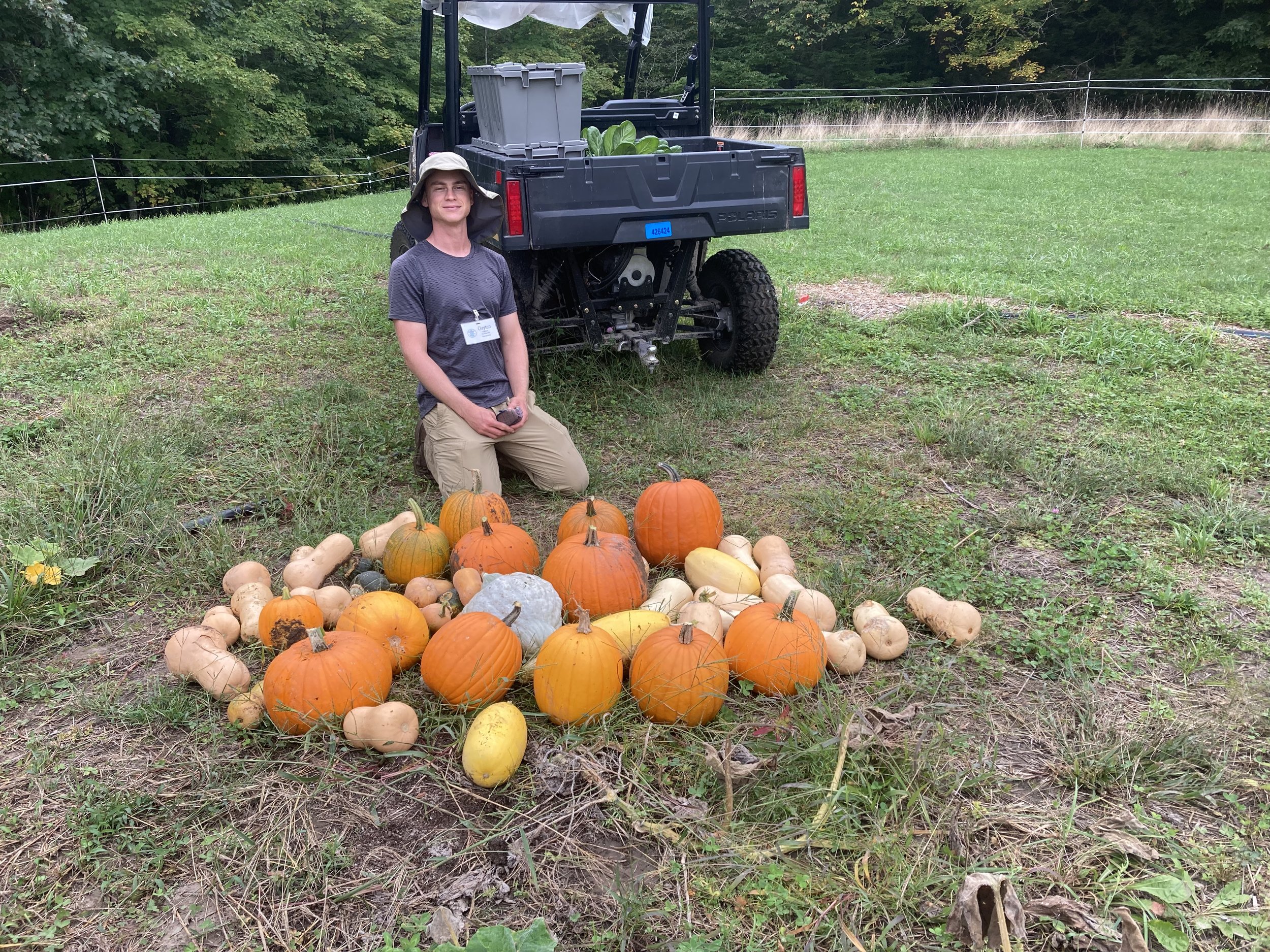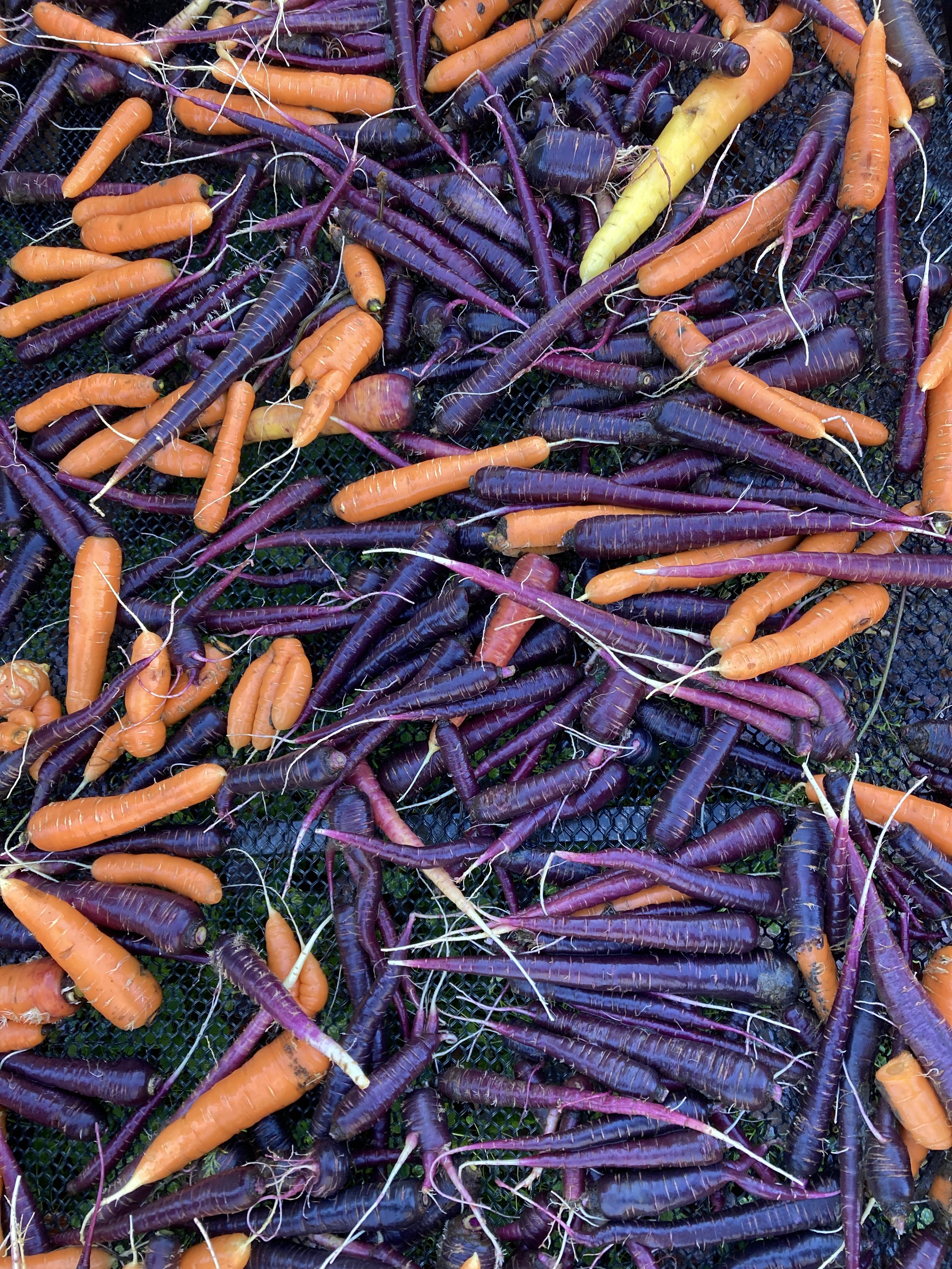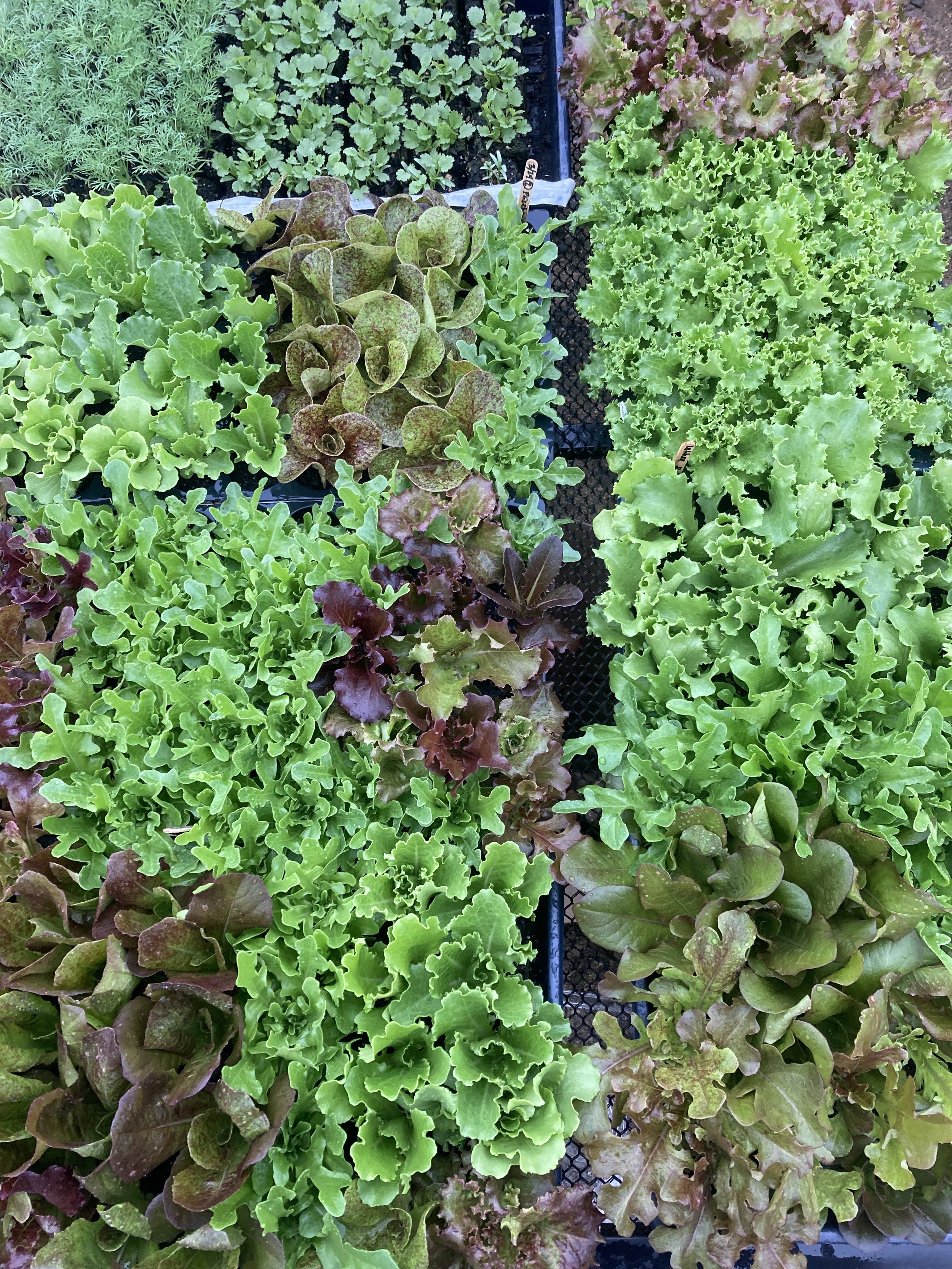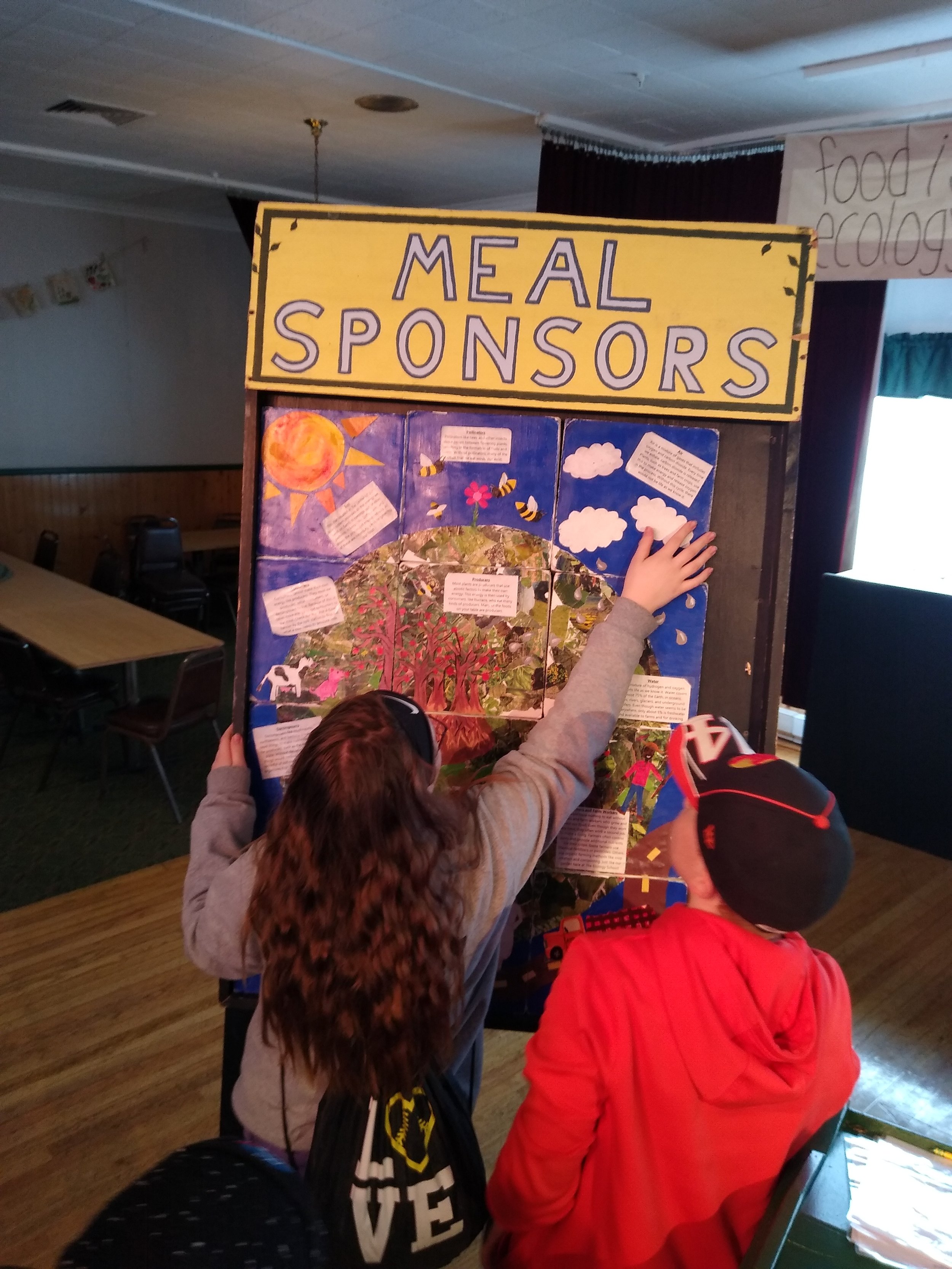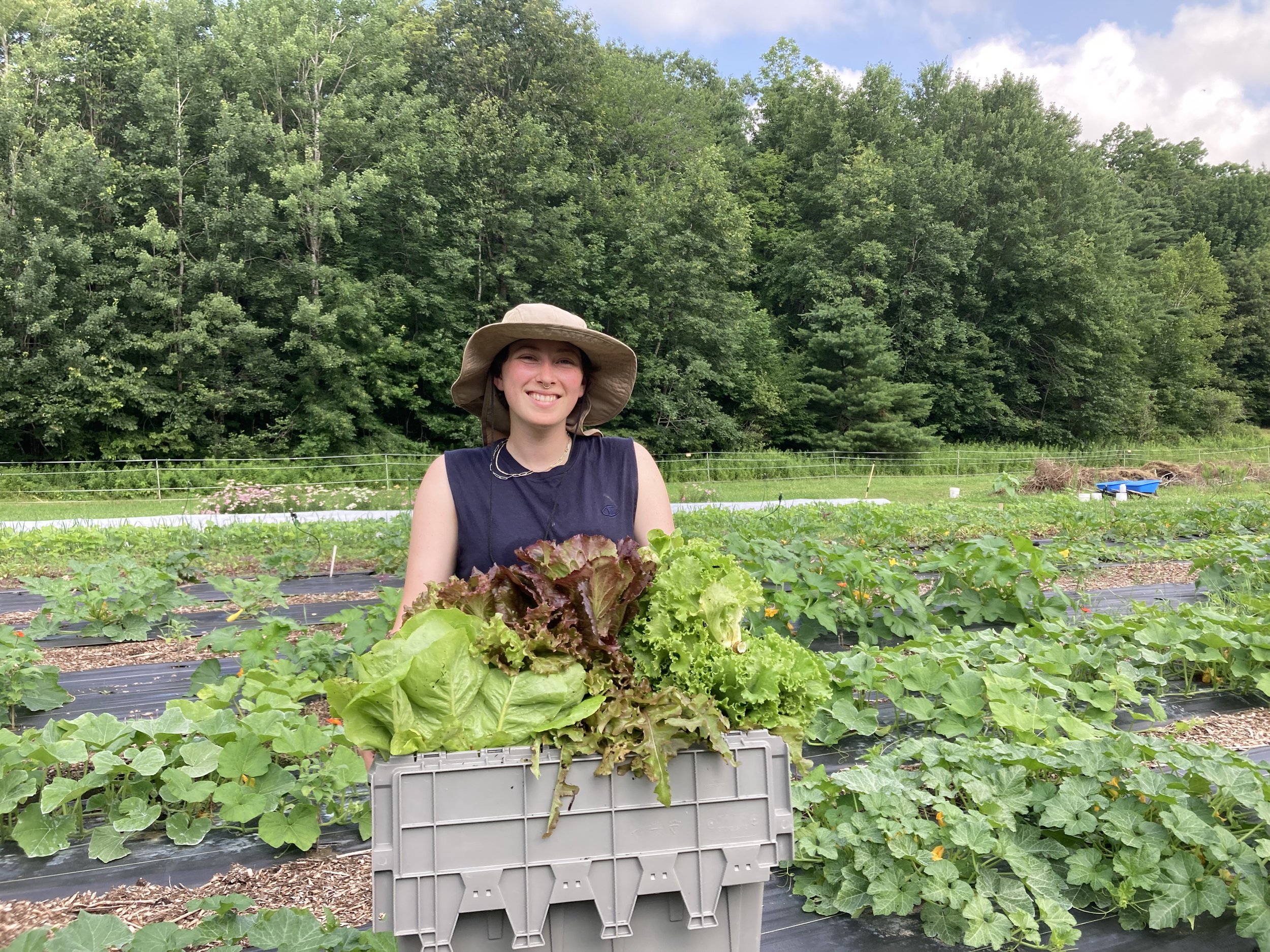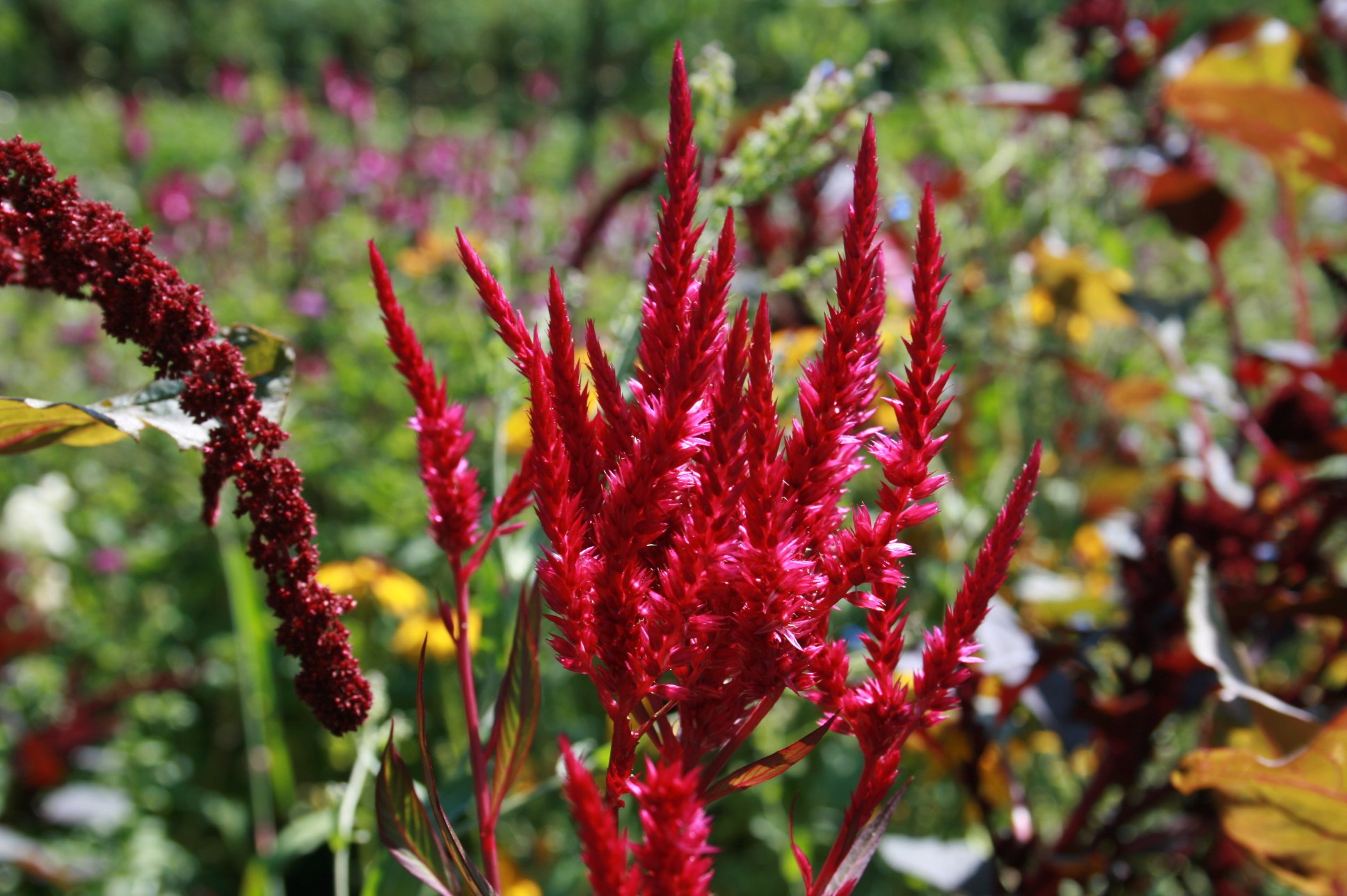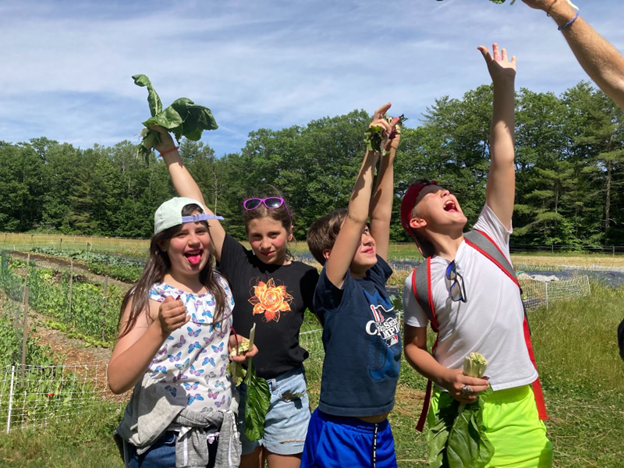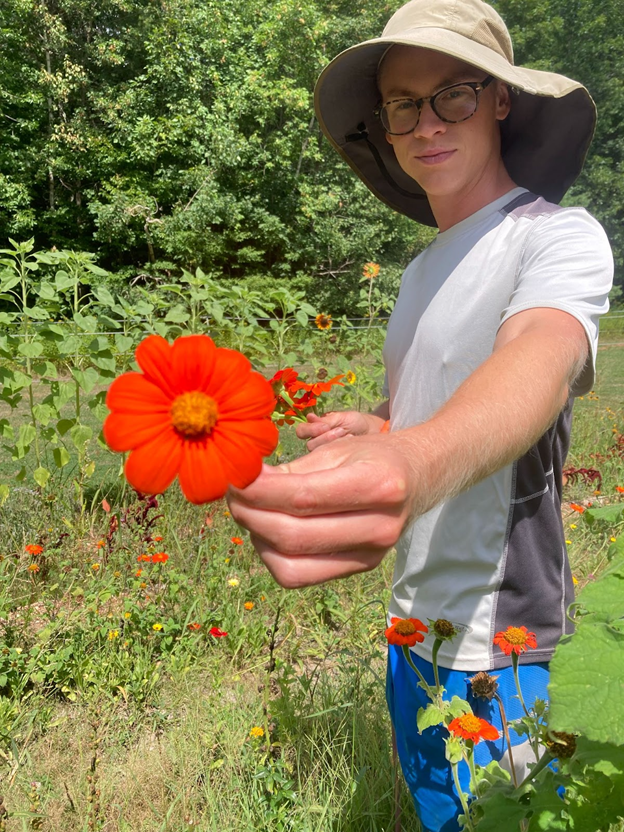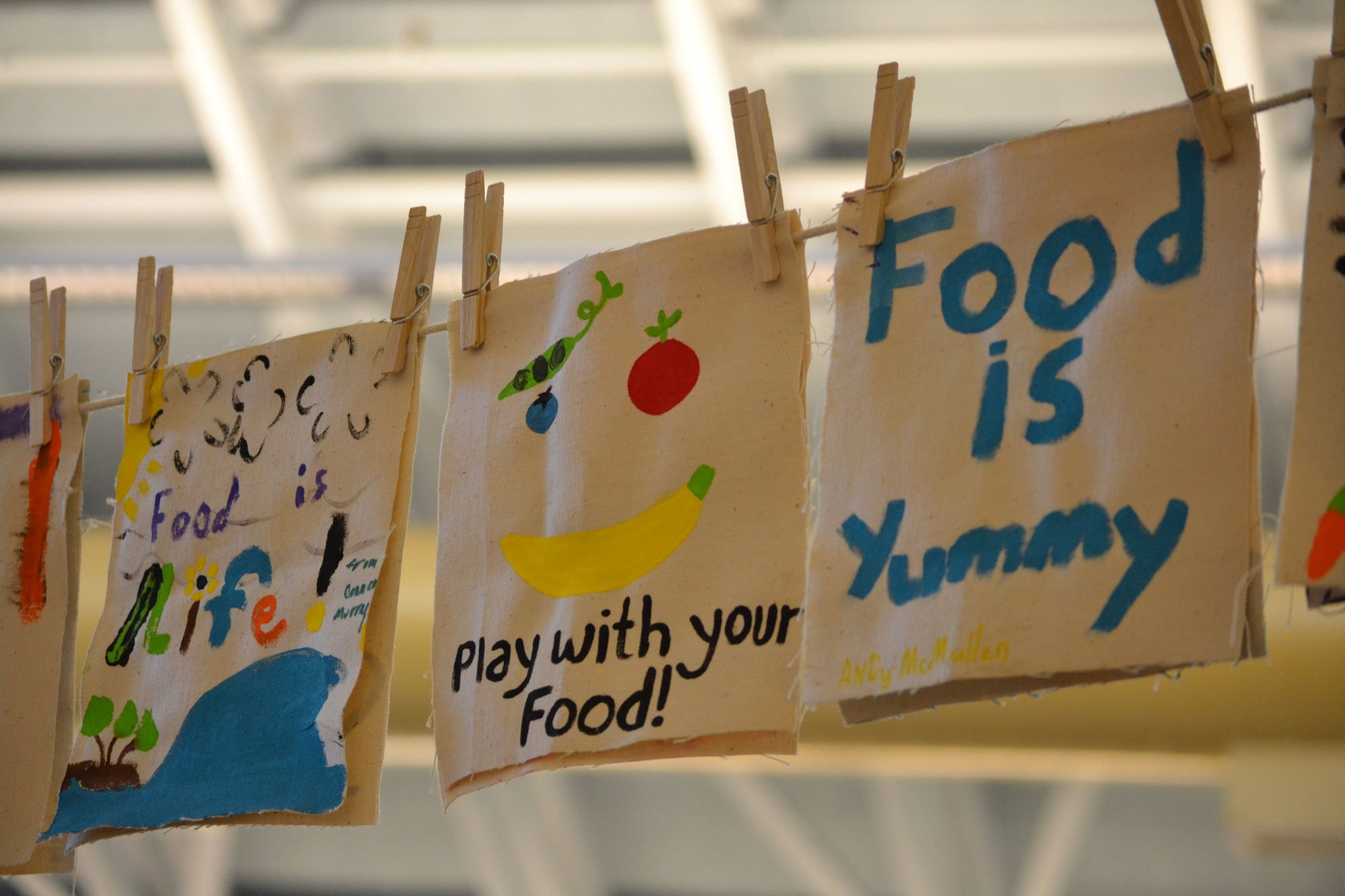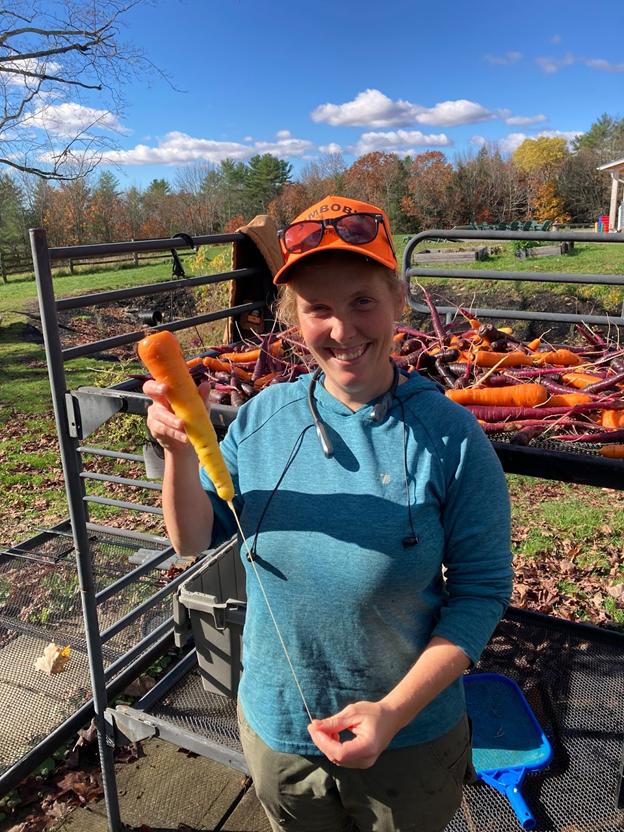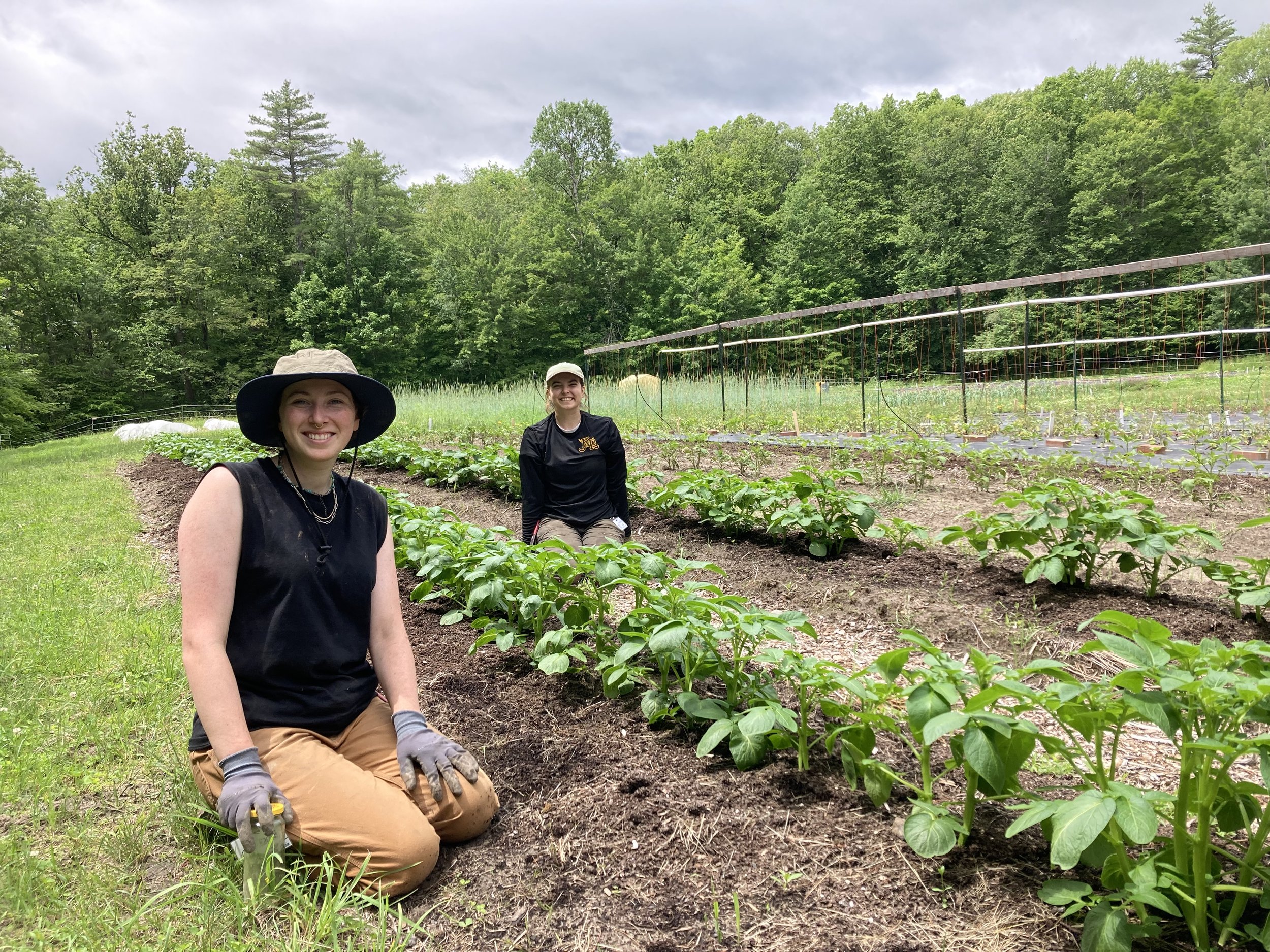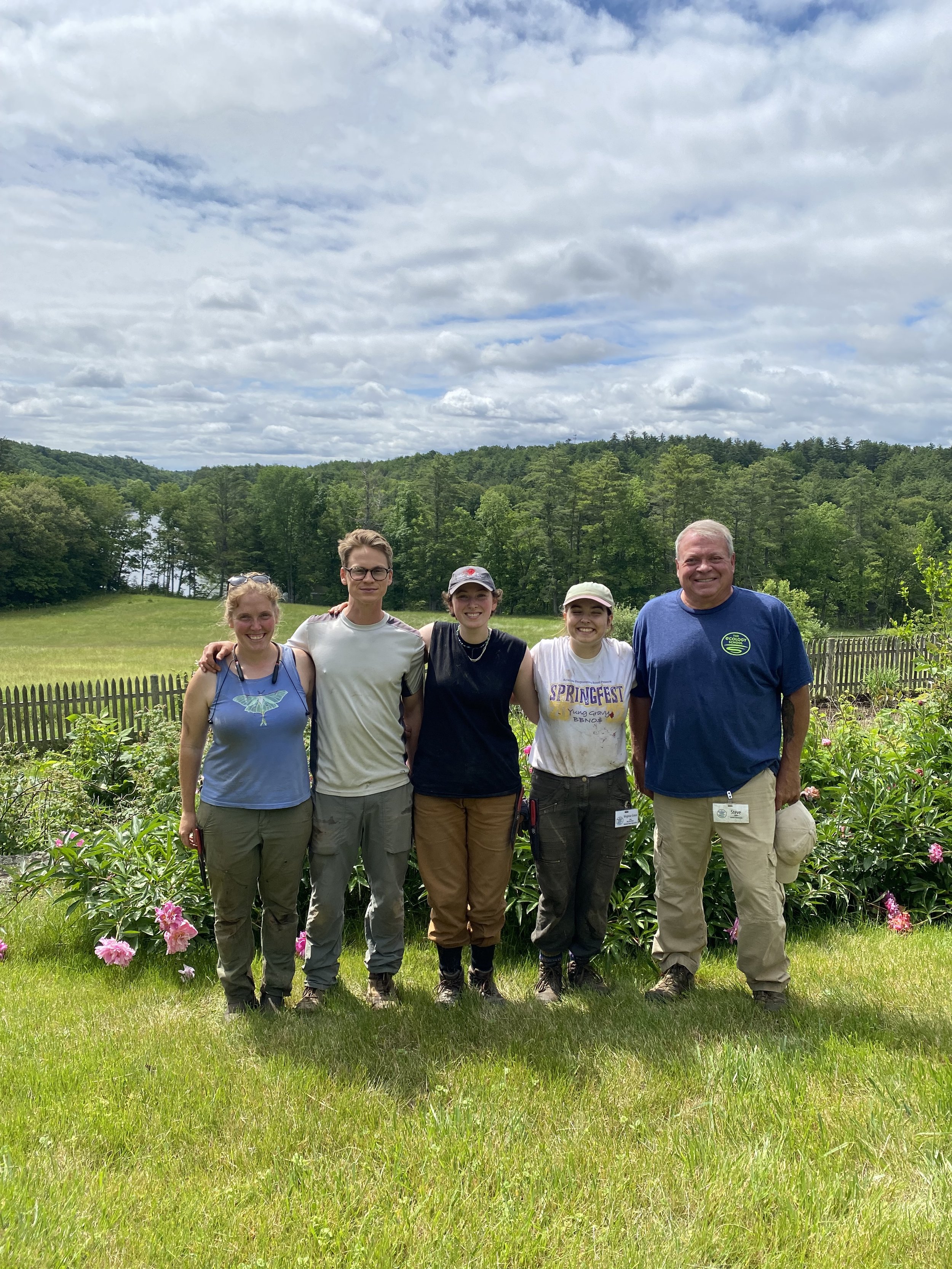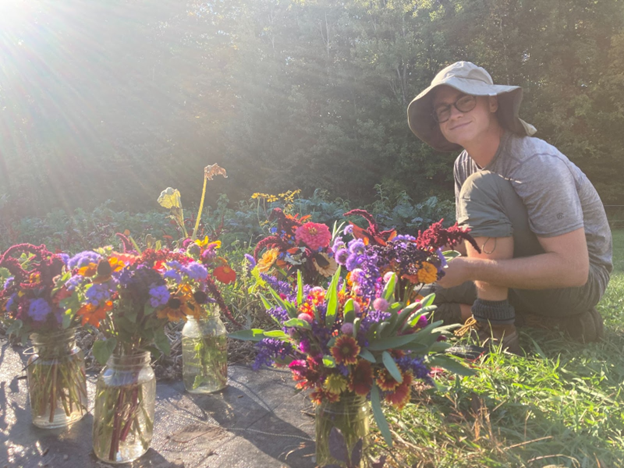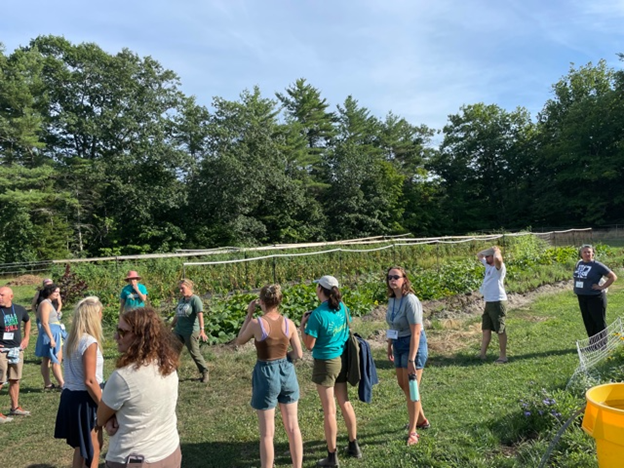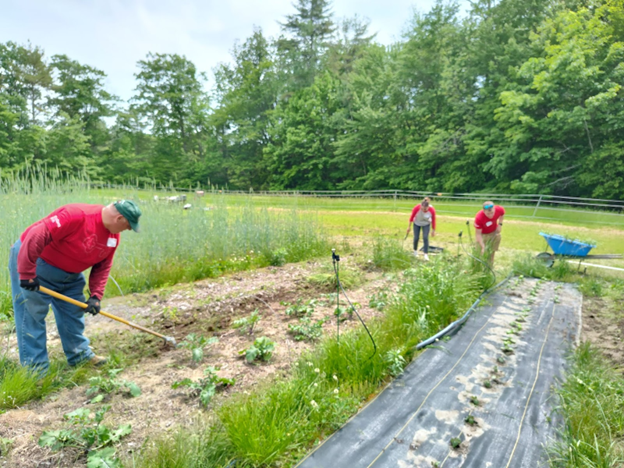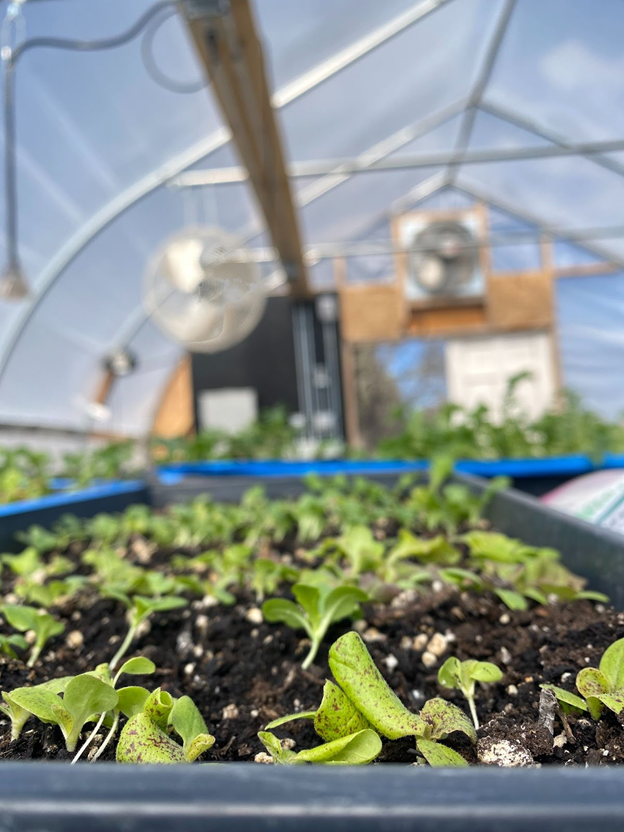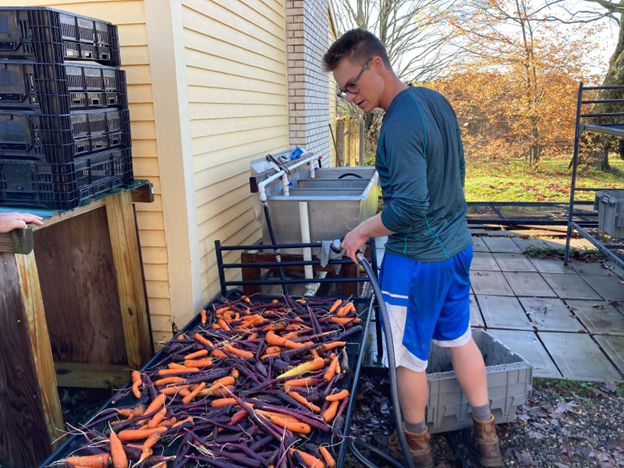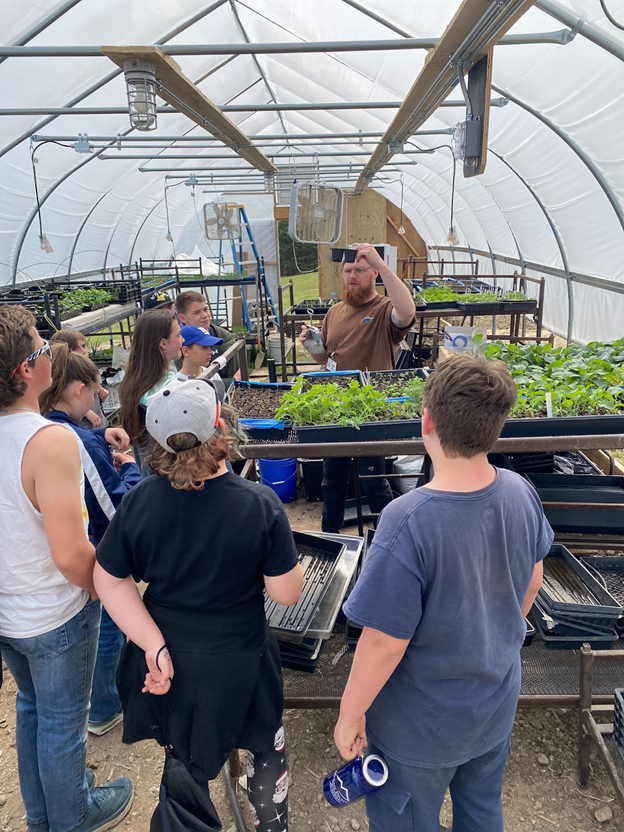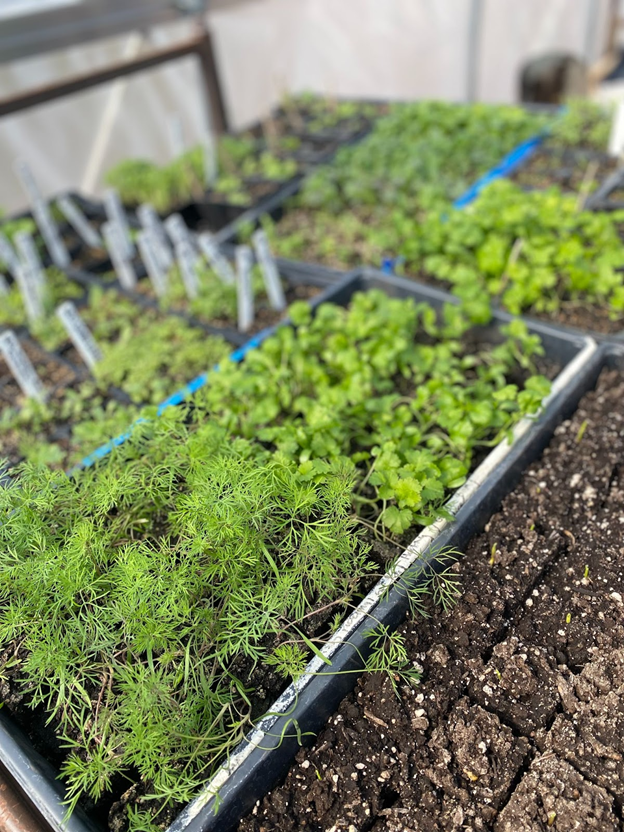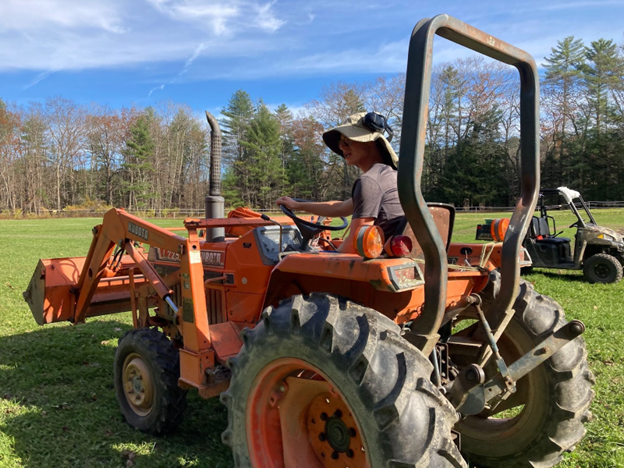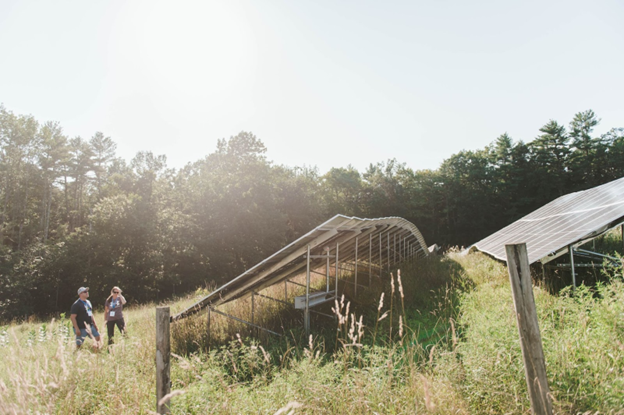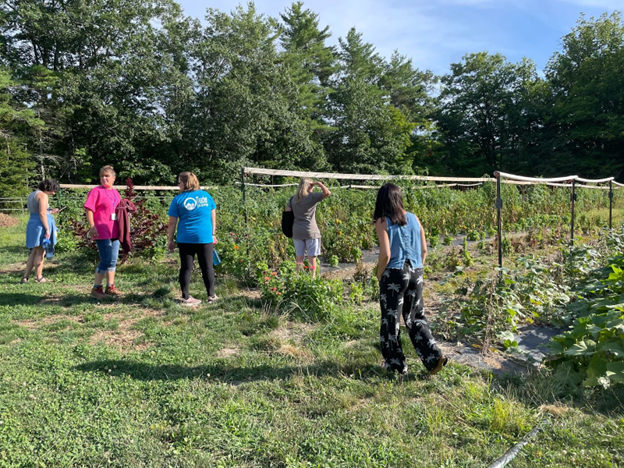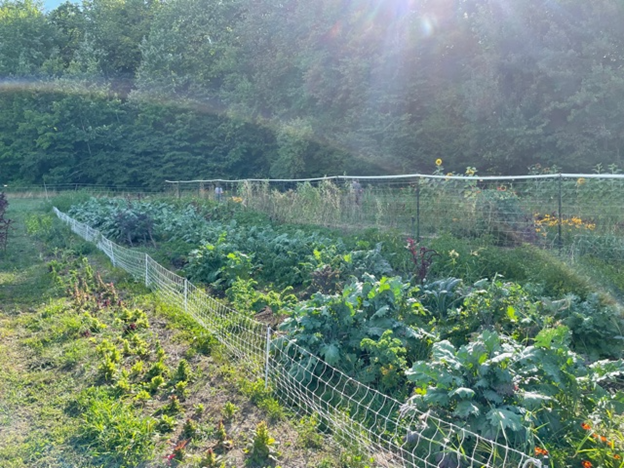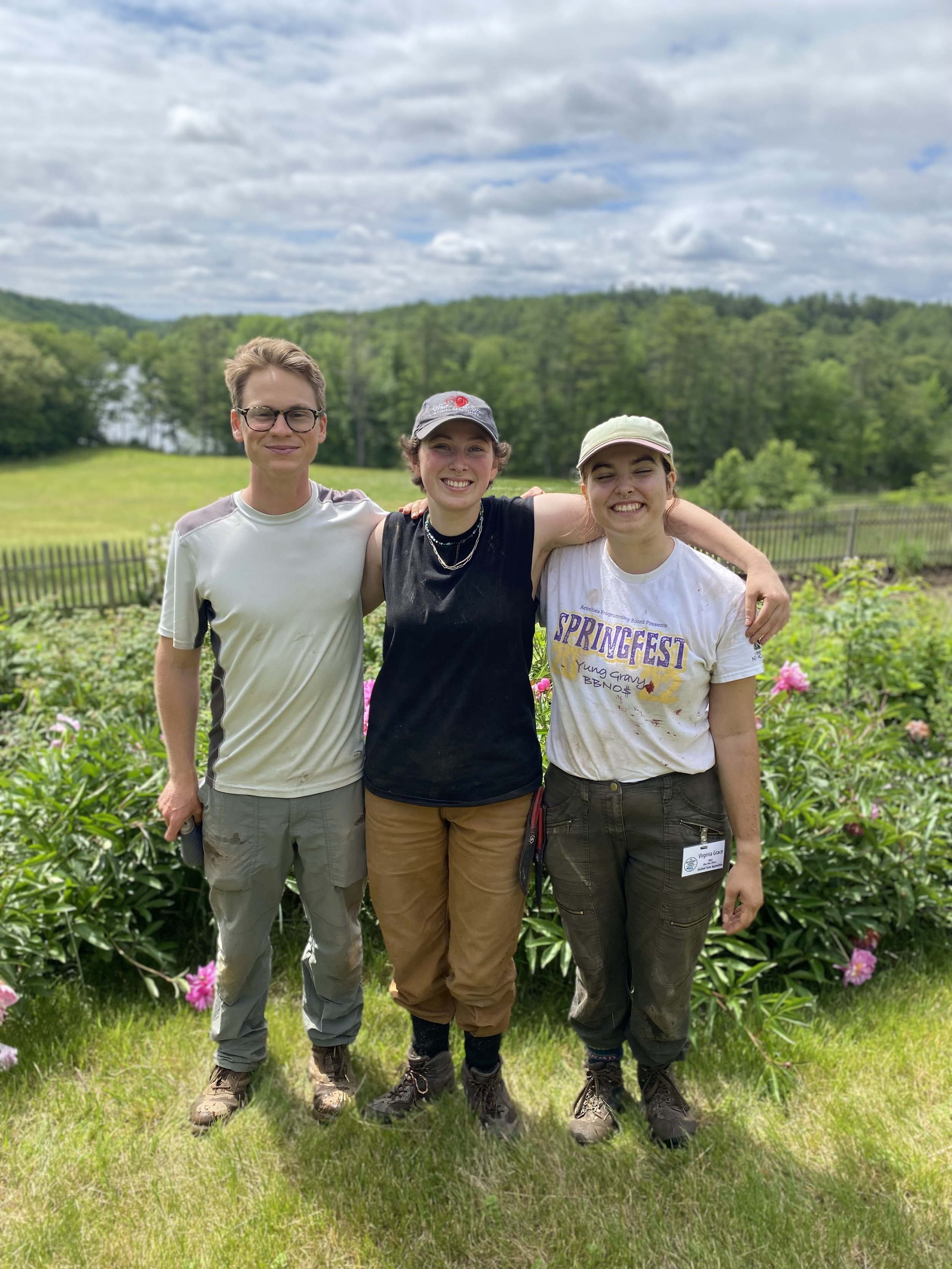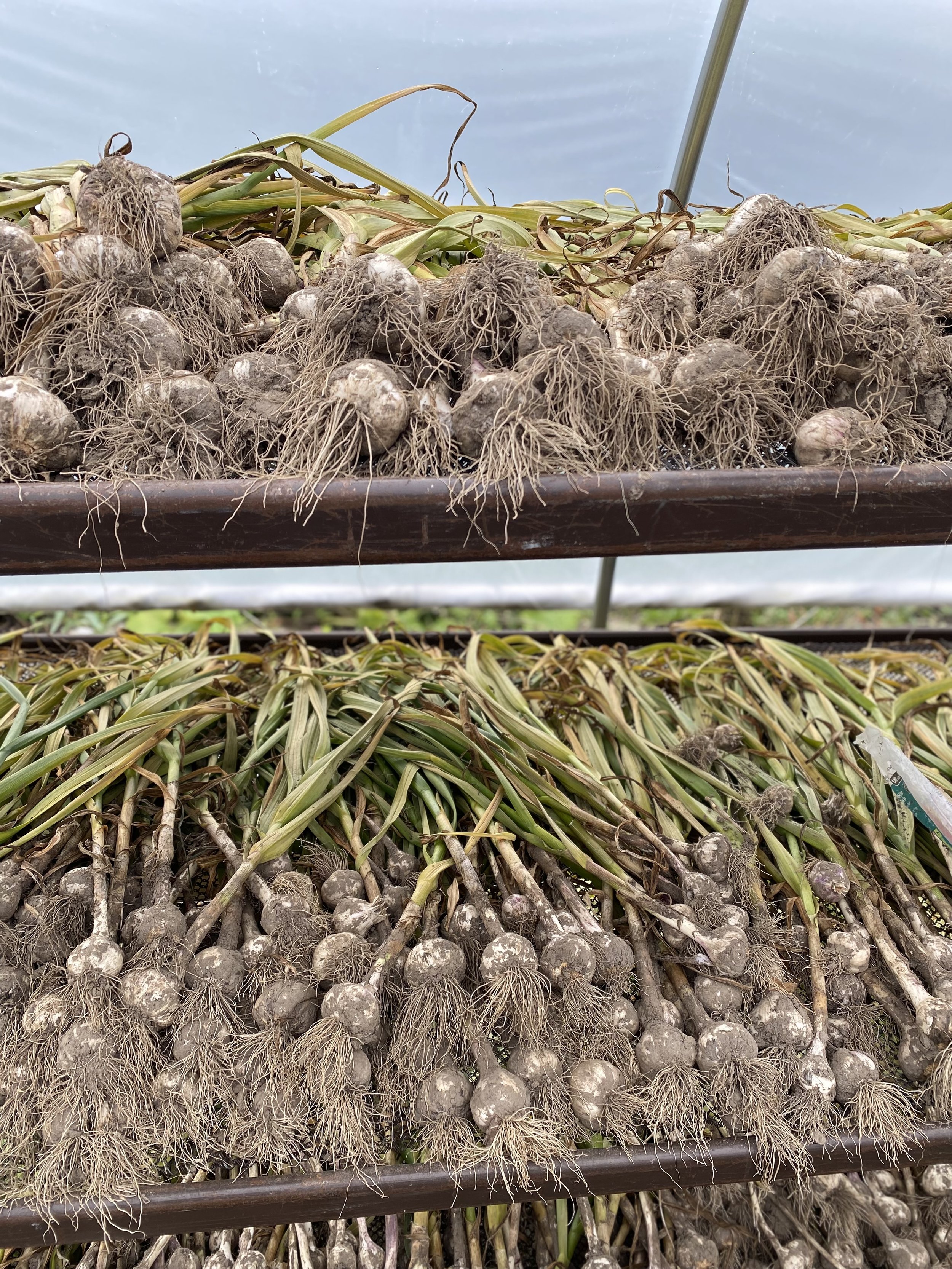AgroEcology for Resilient Communities
The ARC Project
What is Agroecology?
Agroecology is the fusion of ecology and the practice of agriculture. It is a holistic approach to growing, distributing, and preparing food using climate-smart solutions based on natural systems.
The goal of agroecology is to advance healthy and resilient communities by building deep relationships between plants, animals, humans, and the environment while ensuring social equity through sustainable, accessible, and fair food systems.
Agroecology at River Bend Farm and Beyond
The Ecology School’s AgroEcology for Resilient Communities (ARC) Project supports the development of regenerative, climate-smart, and equitable food systems in Maine and the Northeast through a range of approaches including:
Food Systems Education & Farm to Table Initiative
Community Partnerships & Collaboration
Community Engagement and Local Food Pantry Donations
On-site Farming Operations
Student Farm Apprentice Program
Food Systems Education & Farm-to-Table Initiative
Our food systems education and mealtime lessons promote student participation at all stages of the food cycle including seeding, planting, weeding, harvesting, preparing, eating, setting & clearing the dining tables during our family-style meals, and composting.
Adult program participants also have the opportunity to participate in farming activities and enjoy community-style meals made with produce grown right here at River Bend Farm.
For a glimpse of food systems programming, check out this video from the 2022 Maine Farm & Sea to School Institute held at River Bend Farm.
Community Partnerships & Collaboration
The impact of The ARC Project extends well beyond River Bend Farm. The Ecology School convenes local, state, and national organizations and stakeholders at the confluence of education, food, farming, and environmental stewardship. The Ecology School holds a crucial position as a connector and convener between many organizations working in farming, ecology, education, conservation, and the environment, and food systems at the local, state, and regional levels.
We offer opportunities for research, professional development, field studies, volunteering, and community partnerships.
Check out the ARC Impact Report from 2022 here.
Community Engagement and Local Food Pantry Donations
The ARC Project works with local organizations to combat rising food insecurity in our community. Annually, we donate thousands of pounds of farm-grown produce to local organizations providing direct services to combat food insecurity. Since 2021, we’ve donated over 6,000 pounds of produce to local food pantries, helping to provide our neighbors experiencing food insecurity with healthy, fresh, and local food. Through surveys and interviews, our annual crop plan reflects the stated needs and wants of the community, including providing spring seedlings for community members who grow their own food.
On-Site Farming
River Bend Farm encompasses 311 acres and is home to a low-till, diversified vegetable production field, immersive educational foodscape, holistic orchard, productive hayfields, and sustainably managed woodlots. 298 acres are under agricultural conservation easements with Maine Farmland Trust.
Working with natural systems, we aim to build a healthy and vibrant ecosystem in our riverside AgroEcology Production Field. Our approach involves building soil health, growing a wide variety of plants, encouraging beneficial insects & pollinators, and conserving biodiversity. Using cover crops, minimizing soil disturbance, and encouraging natural systems, we grow healthy food that is served onsite during our program meals and distributed by our local food pantry partners.
We are currently expanding the AgroEcology Education Plots to create an interactive and immersive foodscape to surround our upper campus that will include raised beds; permaculture, pollinator, and native plant gardens; and a range of other replicable and scalable edible gardens and regenerative landscaping demonstrations.
As a land-based organization, The Ecology School community is actively working to dismantle inequitable and harmful structures and redesign new systems and processes to ensure that River Bend Farm is a welcoming place for all people to explore their relationship with nature and the food that nourishes us.
Student Farm Apprentice Program
In Maine, there is a growing need for young farmers interested in climate-smart agriculture and regenerative practices.
River Bend Farm offers the opportunity and training to support the growth of young farmers through our 350-hour Farm Apprentice and Student Farm Apprentice positions. If you are interested in learning more, connect with our Farm Manager.
To view open positions, visit our Employment Opportunities page.
“Everything is new and fun for me. I’ve loved soil blocking, planting cabbage, lettuce, cauliflower and broccoli. It feels like everything I’m doing has a purpose and is going to be beneficial for me in some way, either directly or indirectly. It’s wonderful that the kids have an opportunity to be on the farm, engage with it and not be told ‘don’t touch!’ This is for them.”
“Eating is an ecological act.”
“Eating is an agricultural act. ”
Thanks to the generous support of our partners!
We are grateful to the many individuals, businesses, and foundations who have financially contributed to The ARC Projects. Because of this support, The Ecology School has been able to implement and expand our Food Systems program, train farm apprentices, and practice climate-smart farming.
Their support has made a significant impact on our mission to promote healthy and resilient communities. A special thanks to Hannaford Charitable Foundation and American Farmland Trust for their generous donation to expand The ARC Project through an additional 200-acre land purchase along the Saco River. To learn more, click here.


